12 Cult-Favorite Sci Fi Shows People Still Talk About
Sci-fi television has given us some of the most memorable shows that continue to spark conversation. These series have captured the imagination of fans and left a lasting impact on pop culture. Even years after they aired, people still revisit these stories and discuss their unique plots. Whether it is the fascinating worlds or complex characters, these shows have a special place in the hearts of fans.
This post may contain affiliate links, which helps keep this content free. Please read our disclosure for more info.
Firefly
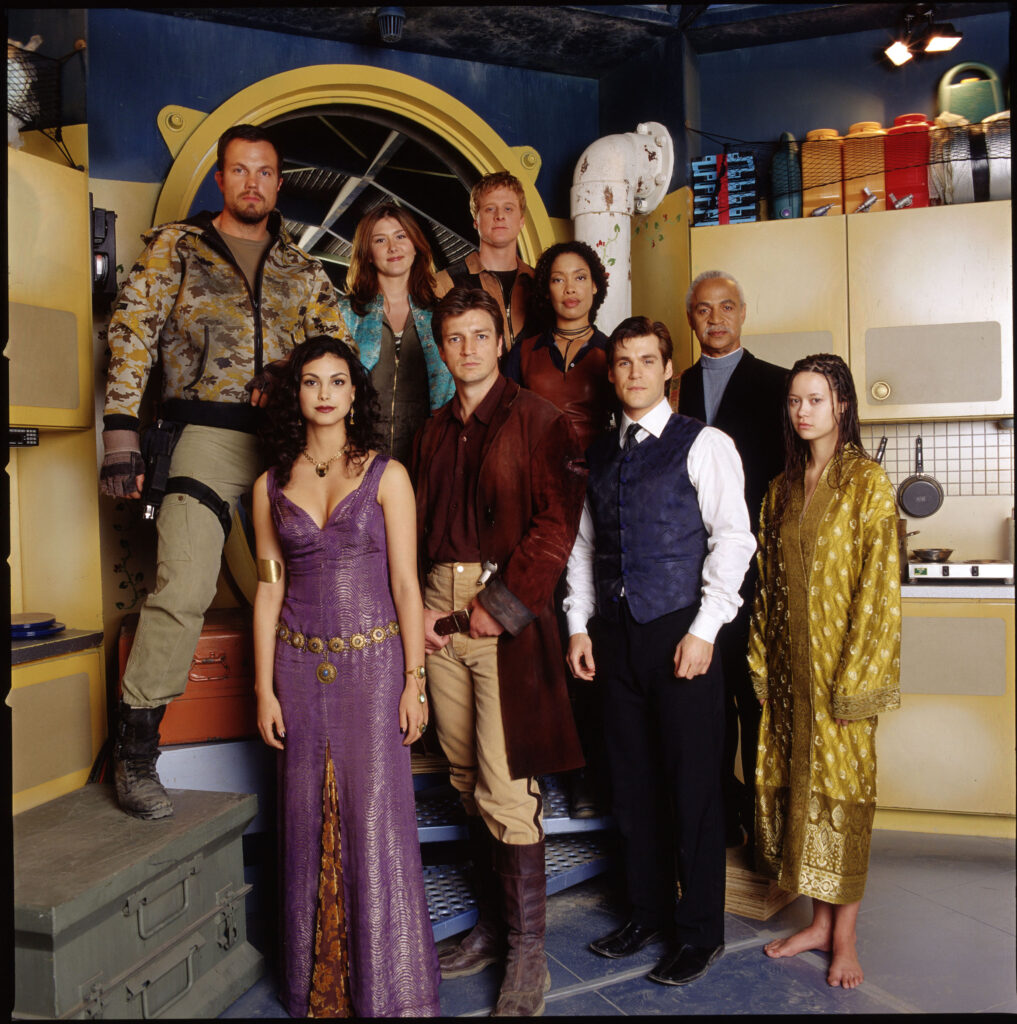
“Firefly” is a space western that has earned a loyal fan base since it first aired in 2002. Despite its brief run, the show became a cult phenomenon due to its unique blend of genres, engaging characters, and witty dialogue. The show follows the crew of the spaceship Serenity, led by Captain Malcolm Reynolds, as they navigate life on the fringes of society. Fans appreciate the show’s exploration of morality, loyalty, and survival in a universe full of political unrest.
Its sudden cancellation after just one season led to an outcry from fans, prompting the creation of a film, Serenity, which continued the story. Over the years, “Firefly” has remained relevant thanks to its loyal fan base, who have kept the show alive through conventions, online discussions, and fan-driven projects. The show’s unique charm, humor, and depth make it an enduring favorite, with its influence still seen in modern sci-fi television.
The X-Files
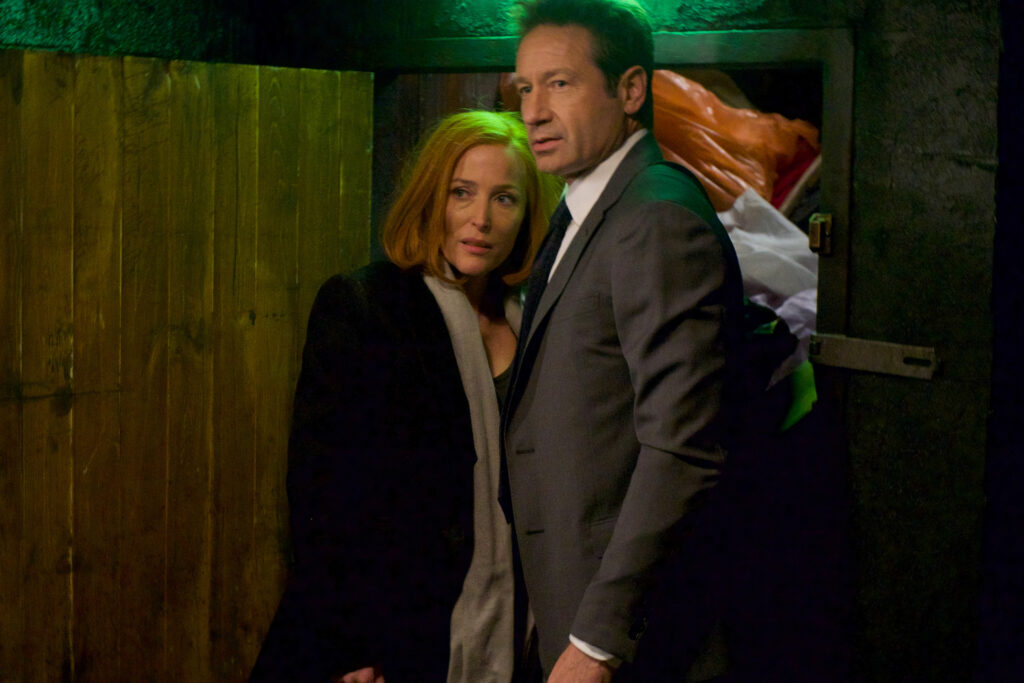
The X-Files brought viewers into a world of mystery, conspiracy, and supernatural intrigue, blending sci-fi with detective work. The series follows FBI agents Mulder and Scully as they investigate paranormal phenomena, ranging from alien encounters to government cover-ups. The chemistry between the characters and the compelling storylines made it one of the most influential sci-fi shows of its time. Its ability to mix horror, thriller, and sci-fi elements keeps audiences intrigued, even years after its original run.
Over the years, The X-Files has inspired a generation of sci-fi writers and creators. Its impact on pop culture is undeniable, and the term “the truth is out there” has become iconic. The show’s eerie atmosphere, combined with Mulder’s belief in the unknown and Scully’s scientific skepticism, offered a unique dynamic. With multiple seasons and a revival series, The X-Files remains a pillar of cult sci-fi television.
Doctor Who

As one of the longest-running sci-fi series, Doctor Who has become a cornerstone of British television. The show follows the adventures of the Doctor, a time-traveling alien with the ability to regenerate into a new form, as they travel through time and space. The series has a unique ability to reinvent itself, keeping it fresh for each generation of viewers. With a mix of whimsical charm and serious storytelling, it has captivated audiences for decades.
From its early days in 1963 to its more modern incarnation, Doctor Who has been a staple in sci-fi fandom. The show’s exploration of morality, the nature of time, and complex characters continues to attract new fans. Its blend of adventure, emotion, and intellect makes it a true sci-fi classic. Fans worldwide continue to celebrate Doctor Who through conventions, fan clubs, and even cosplay, ensuring its place in pop culture.
Battlestar Galactica (2004)
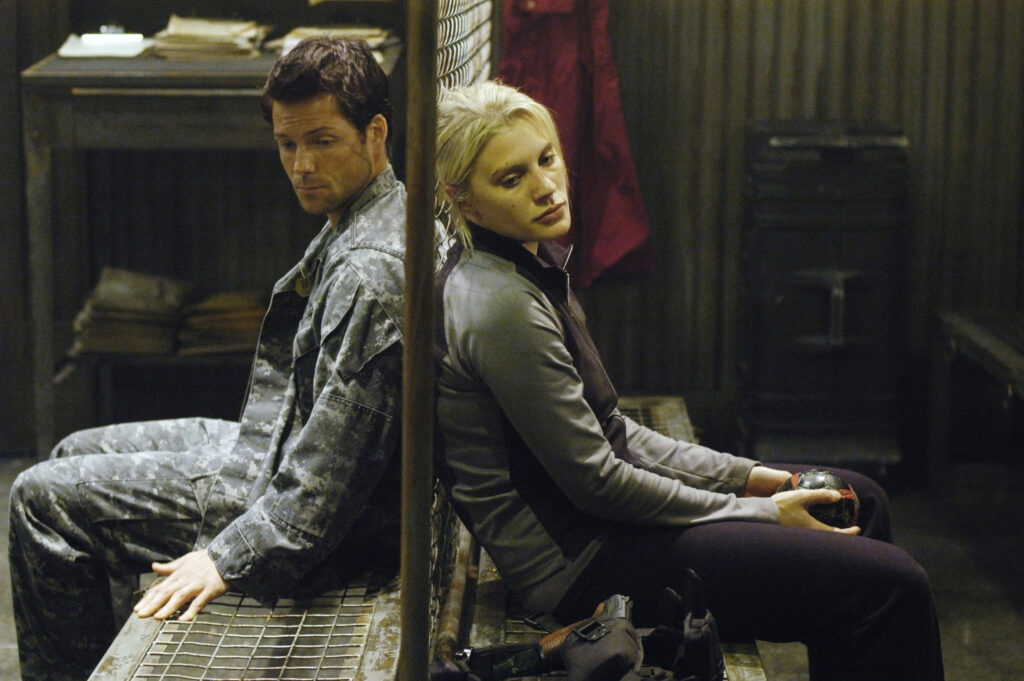
Battlestar Galactica reimagined the 1970s classic, delivering a darker, more complex version that captivated audiences. The show centers around the last remnants of humanity, living aboard a spaceship after their home worlds are destroyed by a race of robots known as Cylons. Themes of survival, identity, and political intrigue are explored, and the show’s mature approach to storytelling set it apart from other sci-fi series. Its blend of action, drama, and philosophical questions kept viewers hooked.
The show’s strong character development and its focus on the moral dilemmas faced by the survivors have made it a beloved series. The final season delivered a satisfying conclusion to the story, though it sparked debates among fans. Battlestar Galactica is frequently cited as one of the best reboots in television history, and its influence can still be seen in modern sci-fi series. It remains a touchstone for fans of high-stakes drama and thoughtful science fiction.
Twin Peaks
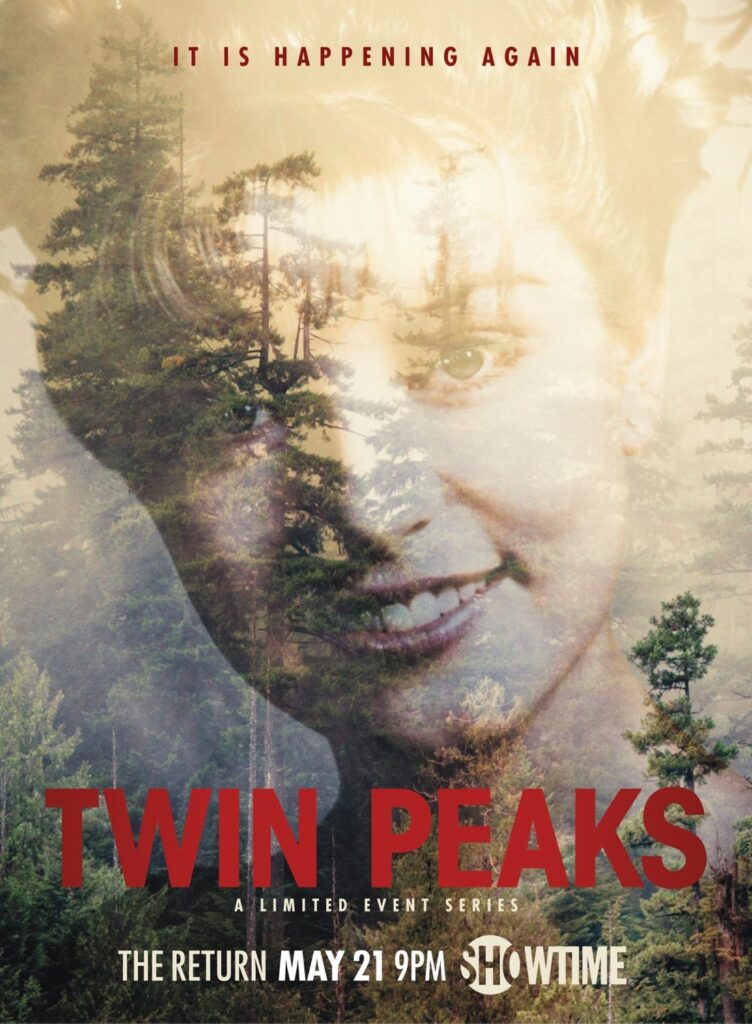
David Lynch’s Twin Peaks is a genre-defying show that mixes mystery, surrealism, and supernatural elements. The series begins with the investigation into the murder of high school student Laura Palmer in the small town of Twin Peaks, Washington. However, as the investigation progresses, strange and unexplainable events unfold, leading to a story that constantly defies expectations. The show’s dreamlike atmosphere and eccentric characters became a hallmark of Lynch’s unique style.
While the show initially aired in the early 1990s, it has maintained a loyal following, with the revival in 2017 bringing new attention to its odd and haunting charm. Fans are drawn to the surreal imagery and the slow-building tension, which have made Twin Peaks a cult classic. The show’s ability to blend crime drama with the bizarre has influenced a variety of series, making it a key example of the unconventional approach to storytelling. Twin Peaks is still celebrated by fans who revel in its mystery and bizarre charm.
Stranger Things
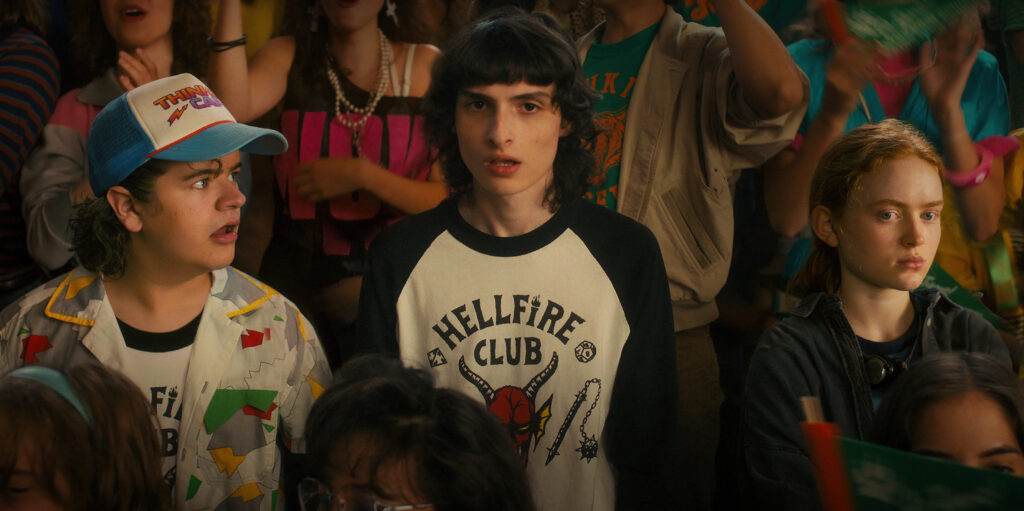
Stranger Things has quickly become one of the most talked-about sci-fi shows of the modern era. Set in the 1980s, the series follows a group of kids in the small town of Hawkins, Indiana, as they encounter a mysterious government experiment, parallel dimensions, and a powerful creature known as the Demogorgon. It combines nostalgia with supernatural elements, creating a show that appeals to both fans of classic 80s movies and modern sci-fi. The blend of adventure, horror, and friendship has made it a global hit.
Since its debut in 2016, Stranger Things has captured the hearts of viewers worldwide. Its captivating storytelling, along with memorable characters like Eleven and Dustin, has kept fans coming back for more. The show has also sparked a wave of pop culture references and fan theories, proving its lasting impact. As Stranger Things continues to expand its world, it remains a favorite for both new viewers and long-time fans of sci-fi.
The Twilight Zone
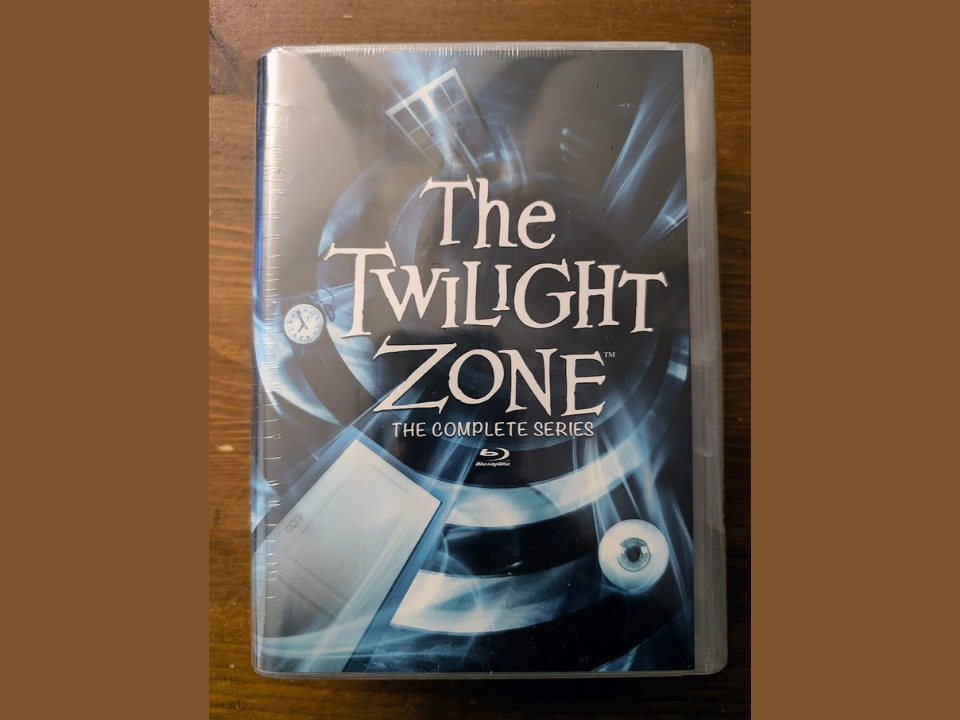
“The Twilight Zone” has stood the test of time as a seminal anthology series that explores human nature through science fiction, fantasy, and horror. The show, which originally aired in the late 1950s and early 1960s, presents thought-provoking stories often with a twist ending. It tackled a wide range of societal issues, often using the genre to comment on human behavior, politics, and morality. Its timeless themes continue to resonate with audiences today, making it one of the most influential shows in TV history.
Rod Serling’s ability to blend social commentary with speculative fiction set The Twilight Zone apart. The show’s anthology format allowed for a new story with each episode, keeping it fresh and unpredictable. Many of its episodes are still referenced in popular culture, and the phrase “You’re traveling through another dimension” has become iconic. The series remains a must-watch for fans of classic science fiction and storytelling with substance.
Stargate SG-1
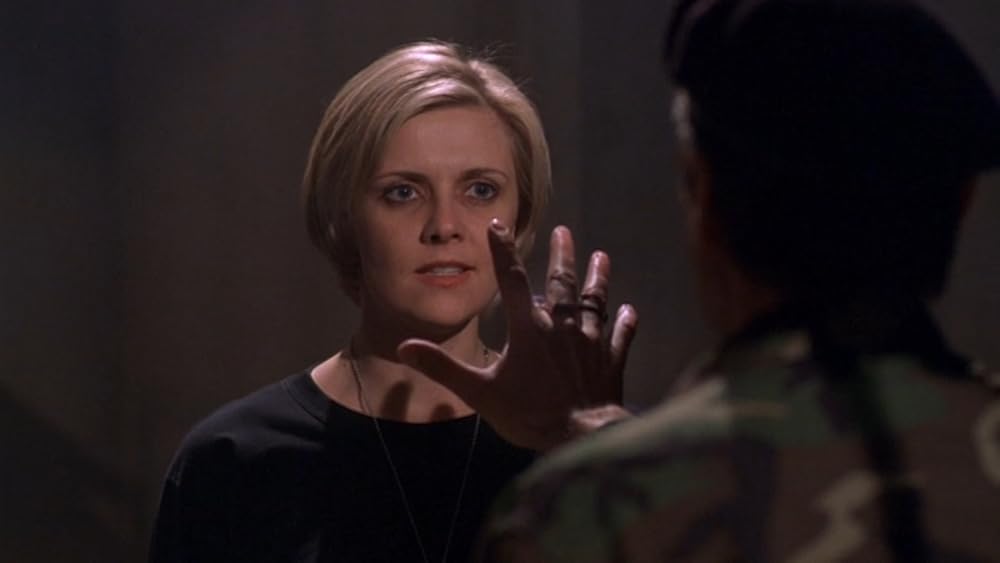
Stargate SG-1 is a military sci-fi series that follows a team of soldiers and scientists as they travel through a network of ancient alien gateways known as Stargates. The show explores various planets and alien cultures while uncovering secrets about humanity’s past and the universe. With its mix of action, adventure, and clever world-building, it quickly became a fan favorite. The team’s mission to protect Earth from alien threats became the foundation for many of the show’s stories.
The show spawned several spin-offs and movies, solidifying its place in sci-fi lore. Stargate SG-1 is known for its engaging characters, especially Colonel Jack O’Neill and Dr. Daniel Jackson, whose dynamic drives much of the series. With its long-running success, it became one of the most beloved sci-fi series of its time. The franchise’s blend of mythology, exploration, and teamwork keeps fans engaged even years after the show’s original run.
Fringe

Fringe is a science fiction series that focuses on a special FBI division tasked with investigating strange and unexplained phenomena. The show is often compared to The X-Files, but it leans more heavily into the realms of parallel universes and advanced scientific concepts. The main characters, Olivia Dunham, Walter Bishop, and Peter Bishop, form a dynamic team that uncovers mind-bending mysteries and personal stories. The show’s unique blend of the bizarre and the personal makes it a standout in the genre.
Its mix of procedural investigation and overarching mythology kept viewers hooked through all five seasons. The show’s exploration of alternative realities, time travel, and the consequences of scientific experimentation struck a chord with fans. Fringe may have been overlooked during its initial airing, but it has since become a cult favorite for sci-fi enthusiasts. Its intricate storytelling and memorable characters continue to inspire discussion and analysis years after its conclusion.
Dark

Dark is a German sci-fi thriller that explores time travel, fate, and the interconnectedness of four families in the small town of Winden. The show is lauded for its complex narrative, which intertwines multiple timelines across generations. It starts with the mysterious disappearance of a young boy and unravels a much larger mystery involving a secret time loop. As the characters discover their hidden connections, the show delves into deep questions about free will and the nature of time.
One of the most impressive aspects of Dark is its intricate plotting, where each season builds upon the last in a way that is both challenging and rewarding for viewers. The show’s exploration of time travel is grounded in well-thought-out rules, which gives it a sense of realism despite its fantastical premise. Its unexpected twists and deep philosophical questions keep fans talking and rewatching the series. Dark remains one of the most critically acclaimed shows in recent sci-fi history.
The 100

The 100 follows a group of teenage delinquents who are sent to Earth from a space station after humanity’s nuclear destruction. The series focuses on their struggle to survive on a planet that has been radically changed by radiation and new dangers. Over time, the group faces moral dilemmas, power struggles, and the harsh realities of rebuilding civilization. It explores themes of survival, leadership, and the cost of making difficult decisions for the greater good.
The show’s post-apocalyptic setting provides a stark backdrop for its character-driven drama, which has earned it a loyal fan base. As the characters mature and evolve, the series tackles complex issues like war, sacrifice, and the consequences of humanity’s actions. The 100 stands out for its commitment to exploring deep philosophical questions about survival and society. It remains a favorite for fans of thought-provoking dystopian sci-fi.
The Mandalorian

The Mandalorian is part of the Star Wars universe but stands on its own as a series with its own distinct style. It follows the story of a lone bounty hunter, known as Mando, as he navigates the galaxy and encounters strange new worlds. The show features a mix of action, humor, and heart, particularly with the inclusion of Baby Yoda, who quickly became a cultural icon. The Mandalorian is praised for its high production values and the way it blends old-school Western tropes with space opera elements.
Since its debut, The Mandalorian has captured the attention of both long-time Star Wars fans and newcomers. It also rejuvenated interest in the franchise, bringing fresh ideas while staying true to its roots. The series has expanded the Star Wars universe in exciting ways, introducing new characters and settings. Its success has led to several spin-offs, further cementing its place in sci-fi TV history.
This article originally appeared on Avocadu.
